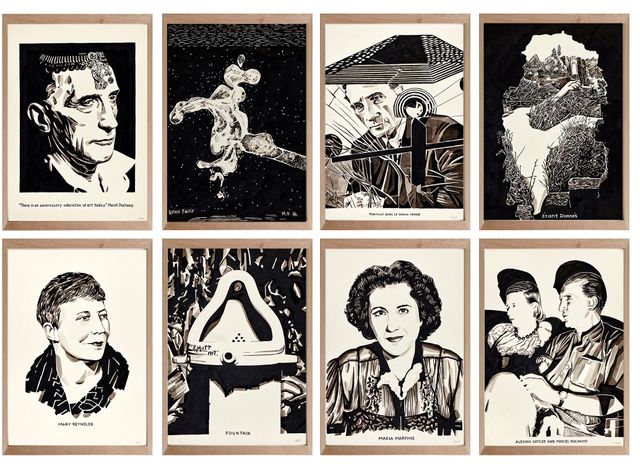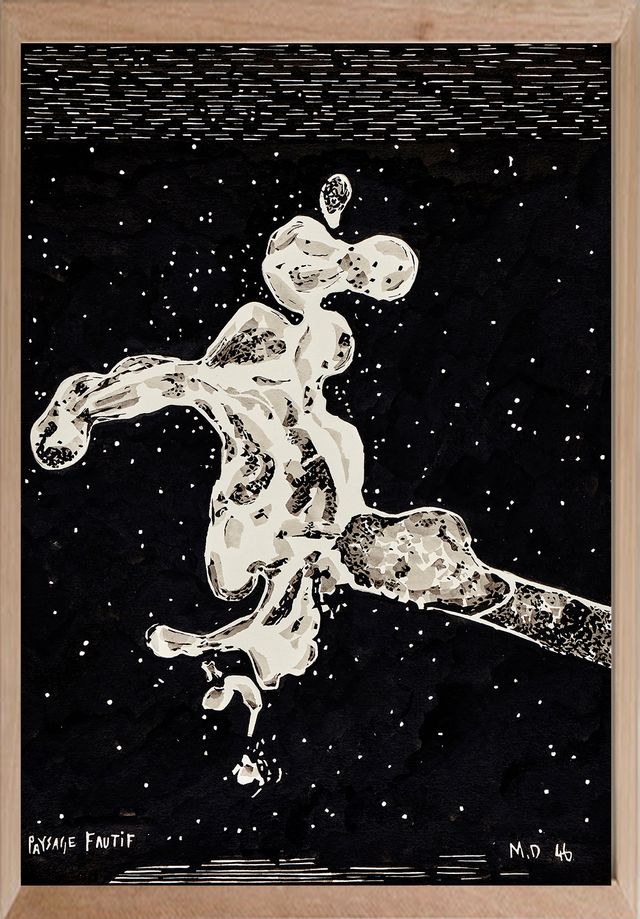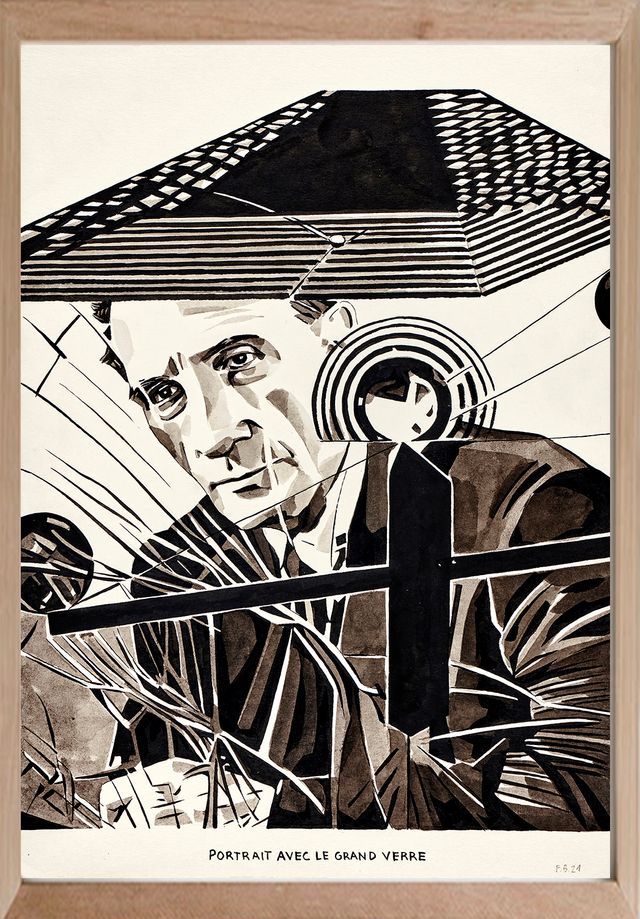“Paysage Fautif” combines images of some of Marcel Duchamp’s most emblematic works with portraits of the women who accompanied him from the 1930′s until the end of his life in 1968. Duchamp, as a key figure in 20th century art, is often associated with the beginning of conceptual art and the invention of the ready-made art, and also with what Herman Parret calls “body- concepts” and eroticism, which in the artist’s own words has an “enormous, visible or underlying but omnipresent” place in his work.
In the synthetic composition of the series, the biographical portraits function as a correlate of the works, as a specular commentary on the construction of a myth.
The title of the series “Paysage Fautif ” (“Failed Landscape”) is that of an unsettling abstract painting made in 1946 with semen and oil that Duchamp gave to the Brazilian sculptor Maria Martins, with whom he had an affair during his stay in NewYork during the years of the Second World War. Martins was also the model for his disturbing and enigmatic work “Etant Donnés,” which took Duchamp thirty years to complete.
Mary Reynolds, artist and bookbinder, was Marcel Duchamp’s partner during the 1930s in Paris.During this period Duchamp devoted himself mainly to chess and his tangential participation in the surrealist movement.At the beginning of the 1940s, in the midst of the World War, Duchamp went into exile in New York, but Reynolds decided to stay in France where he would actively participate in the anti-fascist resistance.
Alexina“Teeny”Sattler, Duchamp’s wife towards the end of his life, appears in an allegorical portrait from the 1950s, a period in which Duchamp’s scarce work recovers a certain prolifcness, also in the production of replicas such as the iconic urinal titled “Fountain”.
The series opens with a drawing based on Man Ray’s iconic photographic portrait of the artist, adorned with a necklace of Turkish coins, with Duchamp’s ironic phrase “There is an unnecessary worship of art today”.
Contact
Website: liviabenavides.com
Email: [email protected]


